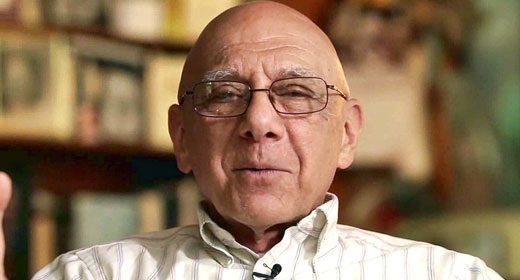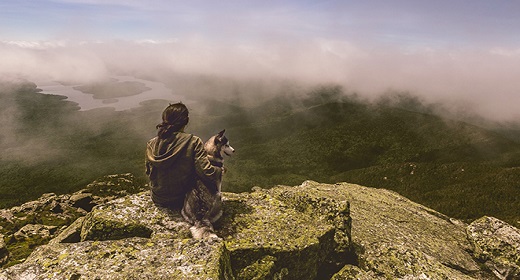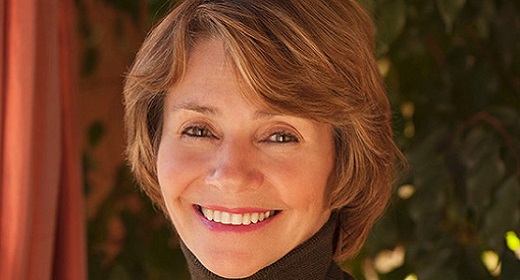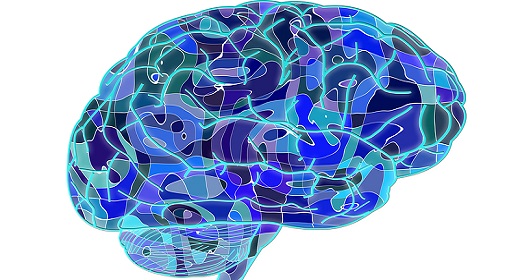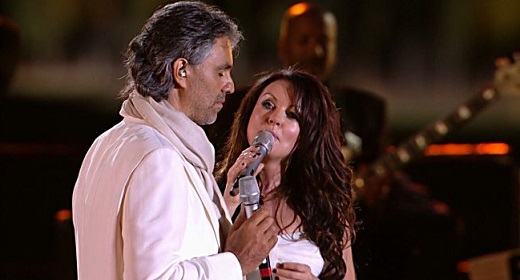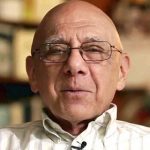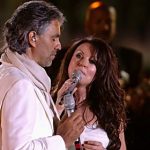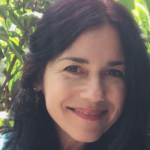Lynne Twist is the author of The Soul of Money and co-founder of the Pachamama Alliance…
Link to Audio
This conversation weaves together various themes explored in my online course, Living in the Gift: charleseisenstein.org/gift
Charles Eisenstein: Hi Lynne. Here I’m with Lynne Twist, dear friend and one of the founders of the Pachamama Alliance and many, many other things. If you want you can read her bio, I’ll probably put that on the website. First, thank you for taking the time Lynne.
Lynne Twist: My pleasure. It’s always a joy to talk to you Charles Eisenstein, always provocative, interesting, insightful and fun. Thank you for inviting me.
C.E.: I guess maybe I’ll start by asking you, what was it that sent you off the deep end so to speak? Your life path is not ordinary. You’re known in the fields of philanthropy, fundraising, I think you were the founder of The Hunger Project or something, but you were really deeply involved in that. What took you out of what I call “the old story” of wealth maximization, you know: the normal life? Did something happen to you?
L.T.: (Laughs) Yes, but I’m not sure how to talk about it exactly, but yes. I think something happened to me. Anyway, I sort of did, I was sort of on that path. I’ll just say my husband Bill… when I got married I went to Stanford and I married my hero and he went to business school and he was number one at business school. A brilliant guy, he still is. I’ve been married to him for 52 years so it worked out great. When he was graduating business school he was recruited because he was the number one guy at his business school, North Western Business School, by all these companies in New York and Boston and San Francisco and L.A. and stuff and I remember thinking then, “is this what we’re going to do? Are we going to do this thing where you just do everything you can to make as much money as possible?” I remember questioning it right at the beginning when I could see that that path was available to us. But it was kind of what everyone was doing so I questioned it, but then I just questioned myself thinking there was something wrong with me that I was questioning that.
So I kind of put that to bed and then he did get a really fabulous opportunity in San Francisco and that’s where we wanted to live etcetera, but I think the thing that happened to me is the EST Training. That really rocked my world. Everybody doesn’t need to take the EST Training to have this kind of thing happen to them, but to me there was something about that program that just totally broke my life open. At that time it was 1974 and it was harsh the EST Training. It was like being knocked over the head with a two by four, it wasn’t gentle. There was a lot of yelling and I think probably because people were so unconscious, I was one of them who was unconscious, and it got a terrible reputation of being a cult and being harsh, people couldn’t go to the bathroom and all that stuff. I can just report as a person who went through that that it worked! Perfectly for me and I woke up out of keeping up with the Joneses trying to be somebody I wasn’t. I really realized, “oh I’m just totally caught in what I would now call a trance. It’s just not consistent with who I want to be or what I want to do with my life.”
I took it before Bill. He signed up then he backed out, “nah, you go first. Let’s see what this thing is all about.” I was so awakened by it I’ll say. I was going to say changed, but I don’t think that’s really what happened. I just got aware then he realized, “oh I’d better go take this thing.” Then he took it and we got involved with a consciousness movement you might say or human potential movement I don’t really know if those terms apply to both of us, but we really realized this was the real deal. There’s another way of looking at life. We took a lot of those programs and we got involved with Werner Erhard who was the founder, in my view is still my… you know how Buddhist people talk about their root teacher; well he’s definitely my root teacher. I mean that guy is just brilliant. There are all kinds of stories about him, but when it comes right down to it the number of people whose live he totally transformed as a result of his work is just astronomical.
I got very involved, I started to work for EST and I had little kids so it was completely inconvenient because the EST staff at that time people worked all night. It was probably like being in a start up now, you work 24/7 and everyone was single except for me. Nobody had kids and I made a special arrangement with the organization, with Werner, to work nine to three because I had little kids, but then I couldn’t stop. I was obsessed. It was almost like a… you know, it was so heady and I really got into it. This is in my book The Soul of Money, but The Hunger Project then was the next level of that and
The Hunger Project really began in many ways because myself and another friend who was working for EST at the time we had this insight; if Buckminster Fuller met Werner Erhard something amazing would happen. So we, through a series of circumstances, arranged for them to meet and out of their conversations, and we were huge Bucky fans, Buckiphiles, Buckminster Fuller hung lung and we thought Werner was the most brilliant person alive and when we put those two people together what happened was The Hunger Project, our commitment to end world hunger. When that was communicated for the first time by Werner when he shared very publicly in a meeting I was in, “I’m taking a stand to end world hunger. It may not happen in my lifetime, but I’m going to put my heart and soul and my commitment behind ending world hunger.”
It was so shocking, it was in 1977. We’d be like me telling you, “I’m going to end rain. It’s never going to rain again.” Something that seems so inconceivably impossible at that time and it swept me off my feet. I remember when he said that I didn’t think I was going to be able to function after that I was so excited. I decided that was why I was born. So then The Hunger project became the next wake up call for me, that I could make a difference with my life because I learned that from Bucky Fuller, that a little individual could make a difference that would impact all humanity. That was the experiment of Bucky’s life. When I heard that it was possible, at least Werner said and Buckminster Fuller said it was possible to end world hunger I thought, “oh my, if I can participate in that my life will be worth living.” So I got super involved with The Hunger Project. I was not a founder. Werner Erhard is the founder. John Denver is a founder. Buck Fuller was a founder. There were three founders technically, but I was there at the very beginning and I had a hand in it.
I’ll just say one more thing, all of this that I’m sharing now really goes back to the fact that my father died when I was thirteen years old. He died of a heart attack very suddenly. He was only 50 years old. He died when we all went to bed one night and everybody woke up in the morning except for one person and he was dead. He had a heart attack in his sleep in the middle of the night. No struggle, my mother was sleeping in the same bed. He looked tired in the morning so she didn’t wake him. He had died about 3a.m. and it was such a shock. That event… I thought it was my fault. Children kind of often do that when a parent dies inexplicably.
I learned later, really I learned in the EST Training that I had to… that I had some belief system that I had to do something major to make up for my father’s death so all of this kind of fit together. The Hunger Project began, could I make that kind of a difference with my life? That would absolve me of my father’s death. I know this is totally illogical but that’s the kind of weird way our brain works sometimes. That set me on a path of what I call, “living a committed life.” A life where I make… and I still do make huge commitments that take me over and then I become shaped by my commitments rather than my desires. For what I said I’d do rather than what I think my needs are. It’s like a surrendering of a life for something larger and for me that’s been a godsend.
C.E.: You could say that you’re making a gift of your life. Once you commit to something you’re giving yourself to that thing and that’s one of the things I’ve been talking about a lot for a few years. The yearning to do that is born of a realization that life is a gift to us. We didn’t earn this. So what am I going to do with this life I’ve been given. The spirit of the gift is that you pass the gift on and it travels in a circle and everyone in the circle is thereby enriched.
L.T.: I agree with that completely. There’s a book called “The Life We are Given” by Mike Murphy and George Leonard. When I read that title, I didn’t even read the book, that seemed totally true to me that this is a gift, this life. If you’re blessed, the whole experience of being blessed is to bless. The reason one is blessed seems to me. I totally agree with that so I turned my life over to these commitments, exactly, as a gift.
C.E.: So what would you say that the origin of a commitment is? Why do you choose to commit to one thing rather than another? Do you have any insight into that process?
L.T.: I probably won’t say anything that profound. It was almost like being in the right place at the right time. When the Hunger Project was born I was just so fortunate to be around Bucky Fuller and Werner Erhard and a whole group of amazing people that were talking about what is the most challenging issue of our time? What is the greatest breakdown in human integrity and the integrity of the human family? It became very clear in 1977 it was hunger. A quarter of the people in the clinic could not feed themselves and their family and we have way more food than we need on planet Earth.
It was a breakdown in the human family that we would allow 44,000 children a day under five to die of hunger and starvation. Such an indictment of human health and I remember also being in the right place at the right time that I heard that. I got that information and I was like, “I’m not going to allow that to continue.” In many ways it just showed up in front of me. Somehow I chose that topic, and then the same thing with Pachamama Alliance, same thing with the Nobel Women’s Initiative, the things that I work on they show up for me and I’m drawn to them and they reach into my soul, but I don’t know how to explain it, except that I’m paying attention you might say.
E.C.: I don’t feel it’d be helpful to explain it. I find that just describing how it is for you can alert other people and myself to pay attention to the same thing. I find your stories to be valuable and I wonder, there are a couple things. One is… and this so often happens in life where something calls to your care, that’s how I describe the process, something calls to your care because of where you are at a certain moment and there’s a certain thing that gets under your skin. Then… and this is from my own experience, then I will attack that thing, that problem, using the toolset that I already have and from the world view that I already have and I see this happening in the world all the time where the means of addressing a problem and the solutions set and the conceptual set is actually part of the problem.
Maybe after years and years you realize that you need to be working on a deeper level. So to take the hunger issue, the most superficial level is, “we’ve got to get food to these people as fast as possible and that will feed them and that solves the problem.” Then you start to realize the institutional forms of scarcity that cause hunger to break out again and again and again in the midst of actual global plenty. We can go deeper to the systems level then underneath the systems level I believe the narrative level, the level of story and perception and meaning. Does this describe any part of your trajectory? It seems that Pachamama is working on a deeper level or at least has a strand of DNA within it that is on a much deeper level than The Hunger Project was and this is a very superficial impression. I wonder if you have any resonance with that process.
L.T.: I have total resonance with what you said. I would say The Hunger Project is the deepest work I’ve ever seen on the planet in terms of what you’re describing. The Hunger Project was what taught us how to understand the “being” sphere, the paradigm, looking deeply underneath as you were just describing that made Pachamama possible. I was at Stanford yesterday in a meeting and someone said something so great. They said, “people say are you part of the problem or part of the solution?” Actually, if you’re actually going to be part of the solution you have to realize that you’re also part of the problem. You have to be part of the problem and understand that you are in order to be useful to the solution.
I would say The Hunger Project is so particularly… when we created it in the beginning and Werner Erhard wrote a document which I highly recommend to everybody listening and Charles you would especially appreciate it if you never read it it’s called The Source Document. You can look at it online, The Hunger Project Source Document. We were really working at the level of being on Hunger because hunger is an indictment really of our humanity being lost and there was the front and the back side of being in Hunger.
The front side of the hand of hunger is the obvious hunger, the hunger of malnutrition, malabsorption hunger, seasonal hunger and starvation, all the things I can talk about, physical hunger. But the back side of the hand of hunger you could say is the hunger for meaning, the hunger to make a difference with our lives, the hunger to matter. These two hungers are one. The hunger in the absolute world, to make a difference, to matter, have a lack of consequence and the hunger in the less consuming world I call it, this is all one hunger in the human family. A hungry child does not cry out as a Bangladeshi or an Italian. A hungry child cries out as a human being so it’s at a level of our humanity that we addressed hunger. It was really deep, deep transitional work and what I learned from The Hunger Project was, and Bill too, is how we really formed Pachamama Alliance and how we address the work we do at Pachamama.
C.E.: This is great. Thinking of the truth of what you said that the hunger of the affluent for meaning, for being of consequence in the world, for, I would also add to the list, for feeling of belonging. When the affluent world is hungry for those things then it is going to necessarily perpetrate the systems of scarcity and injustice and exploitation and just blindness to the humanity of others that create physical hunger for food. They’re absolutely part of the same thing.
L.T.: Exactly, yeah, right.
C.E.: Ok, I’m going to maybe just shift course a little bit. So yeah, we have a system of artificial scarcity in the midst of objective abundance. Somewhere I made a list of 20 kinds of artificial scarcity from food to water to money to quiet to time to love to beauty, you know, the built environment for example, being so much uglier than it was even a few hundred years ago as far as architecture goes. So we have this artificial scarcity. I guess what I wanted to ask: what in your experience maybe shifts the inner conversation or brings people out of habituation to scarcity and into a place of generosity? In order for this condition of artificial scarcity to change not only do our systems have to change, but the mentality and perception underneath the systems needs to change too. What is it that makes that change happen? How does somebody become a perpetrator of abundance through generosity whereas before they were locked in these systems of fear and scarcity? What happens to somebody to make that shift and how do you invite that in another person?
L.T.: Holy moley, what a question. (Both laugh). Well A and then B and I don’t have a formula.
C.E.: Or maybe you just have a story about somebody who went through that shift.
L.T.: I’ll just say that one of the things that I… one approach to respond rather than answer that question is that when we as a human being discover we’re living in a body of unconscious, unexamined assumptions… unconscious, unexamined assumptions… and we begin to examine the examiner, in other words look at our own eyeballs. To me that’s where real access to freedom from a mind set that we don’t even know we have begins. It’s hard to produce that outcome because you’re the person looking through the mind set that you’re trying to see that you have, you know what I mean? It’s just very challenging.
I also think people don’t really want change, they want transformation and I make a distinction between change and transformation. Change, my way of thinking, is you have to make something wrong, you kind of unsalt the status quo to have something different. So it’s usually you make something wrong and something right. Transformation, I don’t think that it does that. Transformation doesn’t deny or insult the past, it completes it and helps it suddenly make sense and it transforms not only you experience of now, but of what you… when you look back and when you look forward… it’s all the same content, but the context has shifted and context is decisive. So how do we have people wake up? I really don’t know. Pachamama, that’s what we’re working on all the time. We have programs and ways that we do that. We take people to the Amazon which is a huge, huge, huge experience for people.
Living with indigenous people, beginning to access the world in the way they see it is live changing a hundred percent of the time. I mean there aren’t people who go, at least the way we take them, and come back and don’t see the world differently, I’d say in a transformed way. After that transformation is rooted in who they are, then behaviors do in fact change. It’s not that the change isn’t useful or isn’t important, but fundamentally my life has been about transformation and then anchored by changes in behavior, anchored by changes in action, anchored by changes in relationships. Thinking of The Hunger Project, I have a zillion stories about The Hunger Project. Ask me the question again so I can tell a story that matches your question.
C.E.: I think these stories are important because so many people, including sometimes myself, fall into this kind of despair actually rooted in the kind of change that you were calling change as opposed to transformation which sets up something wrong and then tries to basically go to war against that thing. It sets up a war situation where there are the good guys and the bad guys. Guess what, the bad guys are always more powerful. It’s the military industrial complex. I mean the bad guys are always more powerful so basically that formula I a recipe for failure and it’s a recipe also for… there’s like a psychological gratification for being on the losing good side.
If you want the world to be different than it is now, like actual transformation, you’re going to have to give up that gratification of being the “good guy.” If that formula is a recipe for failure then we have to look at another path for core transformation which doesn’t involve beating the powers that be at their own game. First you make them wrong then you tear them down. People within what we’d like to call the bad guys having a change of heart. The stories and even in films when the plot of the film is the good guys or superheroes finally defeat Lex Luther or finally defeats whoever the bad guy is, that leaves me feeling really hollow.
There’s part of me who’s like this is just a fantasy, a sop to my despair. The movies that really make me feel motivated to do my work are the one’s where the bad guy has a change of heart. I would love it if you had a story, just any story about a change of heart, especially the person we would write off as hopeless having a change of heart. I mean maybe the Amazon does that to people or maybe some of the other things. If anything comes to mind about that that would be interesting to me.
L.T.: Well I’ll tell a story about India. It’s a Hunger Project story. There’s a lot of stories floating above my head right now, but one of the most beautiful experiences I had in my life was being in a place called Dharmapuri which is in the Tamil Nadu part of India and it has 24 states and one of the states is super poor, many of them are, and one of the poorest parts of this area is called Dharmapuri. I was there to work with women who asked us, The Hunger Project, to come help them stop killing their baby girls. These are women who prayed when they got pregnant. The culture really produced this behavior in women that prayed and prayed and prayed during their pregnancy that they would have a son because girls were not valued. Their life was so horrible they didn’t want to bring a girl into the world so they would pray that their child would be a boy. If they had a girl, as soon as she was born they would kill her. They would smother her to death and they would help each other do it actually.
They had come to a realization that they wanted to stop this practice, it’s called Brigham Young Genocide and they asked the Hunger Project to come help them with it. I was the person who ended up in Dharmapuri with these women with other Indian Hunger Project leaders. I wasn’t an “American” coming in, but I went with my Indian sisters who knew this practise was morally wrong and horrendous for the women themselves. I remember sitting in a circle with them, you know you sit in the dirt in a village where people are living in ways that are almost incomprehensibly poor. The people aren’t poor, but the circumstances are poor and people then think they’re poor. They were sharing about the killing of their baby girls and in some cases some women had killed more than one, two or three and helped other women do the same and they wanted to stop.
We realized they realized and I was present and I’m not saying that I did anything but be present. A white woman being present had power, had impact. To just sit and be with them and listen and cry with them, we invented something called awareness camps where these women would go and they would mourn the way Indian women in that part of the world do, wail and wail and they named each one of the children they had killed and then they would mourn for her and wail and hold each other and scream and cry. Roll up on the ground like a little ball and then we would talk about the next child and then the next little girl and the next little girl until they had mourned every one of the children that they could remember. It’s not that they forgot, ever.
Their previous mind set was that this was a kindness to not let this little girl live the horrible life that they had themselves. It was a gift this soul, that’s how they held it before they realized they wanted to stop. The pain in their hearts that they had killed, makes me cry, their own child. You’re a Dad I’m a Mum, after you give birth, after nine months of pregnancy, to kill that life. I can hardly believe that they had done it, but they had and they wanted to stop and they knew enough that they wanted to stop, but before we looked at how to stop they had to own that they had done that and they did and it was so awesome.
Then out of the soil of that grief they committed to themselves and because I was perceived by them to be more powerful because I was white and I was from the United States and I was one of the executives of the Hunger Project they committed to me and to each other that they would never do it again and they would never help another woman do it. It was the beginning of the end of female infanticide in that part of the world.
Really, you could say not that meeting was the only place that happened, but for these women it was the end of that and in that state then we, The Hunger Project, we created with some of the Indian movie stars, they’re larger than life in India, the film stars. One film star, the most famous film star woman was married to the most famous film star man and even in the poorest village they put up a big sheet and they show films all the time. So the most famous woman movie star and man movie star made what’s called P.S.A., a public service film for us. The woman comes home from the studio and tells her actor husband *gasp* “I’m pregnant” and they say, “oh we hope we’re having a girl.”
Indian films are super dramatic and she’s pregnant and a couple frames later he’s at the hospital and he’s waiting outside the delivery room and the nurses come out and they say, “It’s a girl!” and he says, (exaggerated) “IT’S A GIRL!” Then they celebrate her and a few frames later you see her in school and she’s raising her hand and she’s the best student and then you see her she’s on a motor scooter and she’s got a briefcase on the back and she’s obviously some sort of an attorney or some business person and she’s taking groceries to her elderly parents and then they say ay the end if it, it was like a two minute P.S.A., such a gift to have a girl child.
We showed that P.S.A. a million times, probably ten thousand times in this particular area where we’d had these awareness camps and these commitments were made. It spread throughout the state of Tamil Nadu and India’s… you’ve been to India, it’s incredible. I’m just going back to this moment where I was a witness to what I call a revelation. There were sixteen women at our first awareness camps then we ran Werner’s camps all over India. Those women that had the courage to talk about what they’d done and own it and then make a commitment to a new way of seeing their lives and the world and what it means to be a female is at the very heart of what we do in the rainforest now with Pachamama Alliance and the work we do with women there and the work that I do with my daughter and my grand daughters and what I know to be part of now how I live my own life. I don’t know if that story makes a point or…
C.E.: I wouldn’t presume to reduce that story to a point. That’s one of those stories that I just like to let in and let it work me. In contrast to the conventional approach to a problem like that where you have to exercise some legal penalty for these women, punish them for doing a bad thing, how much more powerful, because punishment doesn’t actually bring any more healing at all. To understand, “yeah, I’m a parent,” it’s inconceivable to me that I’d ever be in a circumstance where I would willingly kill my own child.
If it’s inconceivable that means I lack understanding of something. So it asks me the question, “what would it take for me to do that?” And that is the question that brings us to compassion. “What is it like for these women?” And when you really go there then you get to the place of commitment, of, “I cannot allow this to happen. This is not a world that is ok for me to live in.” I find your stories powerful on that level and also powerful on the level of transformation like women who did this can heal from it and that means our society can heal because this is just a distillation of something that has been happening on many levels to everybody really in some sense.
What precious thing have you killed? That’s just the way it is because you were in a desperate situation, because you were afraid. What killing are we participating in right now? What then is revealed and we can say, “no more! No matter what, I am not going to do that anymore.” What does one need to fulfill that pledge, because just when you say that doesn’t mean the circumstances that brought you to that are magically gone? In fact, probably another invitation will arise to participate in the killing of the world and how am I going to be strong? I can’t just delude myself and wave a magic wand.
This is a dimension that sometimes I feel is missing or not talked about enough in the kind of self help and transformation movements is, at least in my experience it’s been this way, that I can’t rely on my will alone but that the strength of my will depends upon the strength of my connections and the people holding me in a commitment and resonating with it and helping me when I’m weak. It’s significant to me that theses women were in community and saying this publicly which is a cry for help.
L.T.: And also here’s another thing I didn’t say and I think it’s a really important part of it is, after the waling there was this whole process of forgiving each other and forgiving themselves because they began to re-see, recalibrate themselves around the birth of a baby girl and they then saw what they were doing was wrong. I don’t know, this thing about forgiveness is so powerful.
I remember I had the, as I think you know, great privilege of working with Mother Teresa and she used to say, she didn’t talk a lot but when she did talk she said good stuff and she said, “forgiveness is the most powerful form of love and the hardest and the most difficult to express and particularly forgiving yourself.” And that was another part of this scene that I’m painting for you that was just awesome. To forgive themselves for murdering their own child and then forgiving each other for helping to do that and the word forgive, I remember someone, Michael Beckwith or someone defined it in a way so you can go forward.
Forgiveness was a huge part of this process and we talk about punishment and retribution and all of that it so doesn’t work (Laughs) because we’re all fallible. I’m working now with Pope Francis, he’s just such an awesome leader I think in my mind. I find him to be one of the really remarkable leaders on the planet. I had the opportunity to be with him in Rome recently because he’s taking on the Amazon and he’s going ton have a synod for the entire Catholic Church. He has a lot of push back inside of his institutions you know. He wants to apologize for the Church to all the indigenous people of North and South America formally for what the Church has done to them and their ancestors. He wants to take on the Amazon rainforest and stand with indigenous people to protect it. One of the things he’s doing is he’s rescinding the doctrine of discovery. Do you know what that is?
C.E.: Yeah.
L.T.: The doctrine of discovery, this horrible, horrible thing is called the papal bull where popes in the fifteenth century told explorers to go to the new world. It was a mandate to take the land, enslave the people and if they won’t become slaves kill them and that’s been in effect for 500 years and he’s rescinding it. He wants to repudiate it so repudiating it is different than rescinding it, but because the pope is infallible, which is a completely stupid thing, you can’t repudiate so now they’re working, Danny Sheehan and some of the people you probably know are working with Pope Francis on getting rid of infallibility.
When you think of how in the world any human being, I don’t care who they are, be infallible? These are real transformational moments that we’re in now. I think we’re in an evolutionary leap. I think we’re in a, you know, global warming is powerful feedback to the human family, to the species that we are. All of the kind of ‘sturm-und-drang’ that you and I both are very familiar with. I think we’re in some sort of evolutionary leap. People like you who people are really realizing are almost like they came from the future.
I remember someone said that abut you. I think our friend Julio Alaya thinks you came from the future to help us get though this. (Laughs) He said to me, “Charles Eisenstein, he’s from the future. He doesn’t come out of this culture, he came from somewhere else, an alien.” I really think we’re in evolutionary leap and that there are these seismic opportunities for transformation.
C.E.: Yeah, it does feel like a watershed moment and at these moments there’s also the invitation to go back to the past, back to the customary way of doing things that’s a version of infallibility where you are so sure that you’re on team good that anything that confirms your goodness and rightness and helps you win over the other side, you will accept that even if it comes at the cost of truth or the cost of another human being, that’s a necessary sacrifice because after all you’re the good side. You are, in a sense, infallible.
I’m seeing this play out as a polarization in society, especially in the political realm that I’ve never see in my lifetime to this extent where the two sides are in separate realities. They’re not even able to talk to each other because what they consider to be a valid source of truth and information is totally different and so in seeing this polarization that makes it look like we’re going in the wrong direction where people are becoming less and less able to empathize with the people that they see perpetrating wrongs in the world.
Without empathy there is no forgiveness. If you can’t say, “yeah, if I were in the totality of your circumstances I might have done that too.” That’s where forgiveness comes from. I’m seeing it going in the opposite direction, yet underneath the surface outside the political conversations I really am seeing people get more and more awareness, become more and more empathic, more and more even courteous, more able to take ownership of their stories and their projections and their assumptions.
There is an awareness growing that we have to let go of the war on the world and judgement and assumption and projection of another person is a form of war because you’re setting them up as different from you. I wouldn’t have done that. If I were one of those women in India I wouldn’t have done that. How horrible they are. Well, yes you would have done that. You don’t know what it was like. It’s scary to know what it was like, to open up to what it’s like because if you fully take in this fact, if you fully take in what it’s like to be a child in Yemen for example right now. Then you have to say this is not OK, I cannot continue living in the way that I’ve been living because this data point makes it unacceptable.
We have a whole society that has layer after layer of defense against really taking it in mirrored by the psychological defenses which take the form of writing people off, judging people, condemning people. I wouldn’t do that. What I’m seeing is that people are starting to take it in, at least interpersonally. On the political level yes, still making stories about whatever, the terrorists, the immigrants, the white nationalists, Black Lives Matter, whatever, everybody has their own version of it. People who profess and I’ve seen this happen in airports and stuff, two white guys having a conversation invoking all these Trump ideas and the welfare queens etcetera, etcetera and then in an actual transaction with an actual black person totally not patronizing but totally human to human. Courteous. Considerate. This is an interesting schizophrenia here. I guess I’ll just say that I’m also seeing what you’re seeing even when sometimes it looks like the opposite.
L.T.: Yeah, it sounds like the surface noise we all are exposed to is so dissonant and it’s upsetting and it’s hard to be with. It may be, I don’t know if it catalyzing something underneath for us and I am a friend of Van Jones, you probably know Van and Van just had this huge victory with the criminal justice bill, I don’t know if you were aware of that. I’ll send you a little video of that. He’s been working in criminal justice pretty much his whole life.
He’s a commentator on CNN now so he has some real visibility. He’s a liberal commentator, a progressive commentator. Very, very clearly is a black man identified with the liberal progressive left and he was in the Obama White House and then he was driven out of the Obama White House and they kind of took him down. The “they” being the people on the right, particularly financed by what seems to be pretty clear, the Koch fortune. He tells the most beautiful story about this criminal justice bill that he’s been working on pretty much all his life.
He realized that Jared Kushner who was not his best friend and somebody he didn’t agree with in almost any way, his father was in prison, Jared Kushner’s father was in prison. Jared Kushner went to visit him every week and really got exposed to the horrors of the prison system so Van had the courage I’d say and the humility to go see Jared Kushner and they had some sort of a conversation on how, “we both knew the prison system doesn’t work. Would you work with me I need to find allies on the right side of the aisle.” He also worked very closely with the general council of Koch Industries.
Together along with other people in that part of the political spectrum realized that there was a lot of people who really wanted to transform the prison system that were on the right and he didn’t really know that and because he was talking to them some of his most beloved friends on the liberal side started to consider Van a traitor because he was having conversations with the other side rather than, “aha, we made a bridge! We can start working together!” No, they were, “what are you doing?!” He’s been really vocal and visible about this even on television. How powerful it was to actually have to get off it (laughs) about these people and listen to them and realize they’re human too and that they have some of the same things that they want and working together.
Then there were people who really, because they didn’t like president Trump, did not want him to be the president who signed a criminal justice reform bill. They didn’t want him to have that victory. When you think about it I even have that inside of me a little bit you know. “Oh God, does it have to be a Trump Bill?” There’s so much of that on the surface, but underneath I would say because our government is so dysfunctional no matter who’s in charge of it, it’s forcing us to take responsibility at a new level for the mess we’re in and for the role we can each play or at least that’s one interpretation.
I appreciate that because I learned in some conversation, maybe it was a conversation with you, that the revolutions that took place, the “revelations” that took place in Scandinavia came in the 30s because things were so divided there population kind of rose up and created a new culture, a new political culture. I really don’t know what this is, but if you take the long view rather than the short view, something really amazing and profound is afoot now in our country, in humanity, in the world and I think you’re one of the people and I just want to thank you for this, looking for that truth, naming it when you see it.
The more beautiful world we know is possible, you are a voice for that truth and I hope to be that myself and I really appreciate that you’re always looking for it, you’re always drawing it out, always looking for people who can speak it and listen for it and I just want to thank you for that.
C.E.: Those are generous words Lynne, thank you for speaking them and I’ll return it just by saying that I feel really moved by your openness to truth and your willingness to put it above winning, you really exemplify that. That’s what commitment is, when you’re committing to something more than to something else. (Both chuckle) Could be being right, having been right all along. A lot of people’s secret commitment is to that or to defeating the other side. I haven’t been in touch with Van Jones for a number of years, but I remember feeling that about him, that he was actually committed to something.
When you make a commitment there is a sacrifice to be made. One of the sacrifices could be the camaraderie of the people who are with you on team good and now you are reaching out to the Coke Brothers, and now you’re making alliances across the aisle. This is going to happen more and more as the legitimacy of the system falls apart and more and more people, as you were saying, realize that even if you do win the election nothing really changes because you’ve been in service to winning.
George Orwell actually wrote about this in a distilled form in 1984 where the goal of the party becomes nothing but power and they have an ideology that says the power is ultimately to make a better society. Until we get perfect power, complete power, then we won’t be able to do that so power becomes an end in and of itself. It sure looks like politics is like that. I do see that with the breakdown of the legitimacy of the system it’s confusing who’s right and who’s left anymore. A lot of the best anti-war websites are kind of right wing and along with opposition to the prison industrial complex, the war on drugs, it’s really confusing who’s left and who’s right and I think this breakdown in our identity is a really hopeful sign.
L.T.: Buckminster Fuller predicted in 1976 he said the most amazing thing, he said that all the institutions of humankind are rooted in a “you or me” paradigm, a scarcity paradigm, either you make it at my expense or I make it at your expense, but there’s not enough for both of us. That was kind of the belief system of the human family and to some extent it obviously still is.
Bucky said that we now live in a “you and me” paradigm, a “you and me” world where there’s enough for everyone everywhere to have a healthy productive life. He said the institutions of human kind have all been rooted, the economy, governance, education, even religion in a “you or me” paradigm and that they will need to fall apart, completely disintegrate and be recreated from a new paradigm, from a new soil, from a you and me, what I call sufficiency, understanding the whole world.
He said it would happen in the next… he said in 1976, that it’ll take 50 years for institutions to completely become so dysfunctional that we have to recreate them from a new soil. This is right around the time, if Bucky’s prediction is right, of political systems falling apart; education is not exactly what we want it to be and falling apart, religion, the church…
C.E.: Health care.
L.T.: Health care. This phrase we use in Pachamama Alliance that I want to use now is that the job of people who are awake is to hospice the death of the old structures and systems that no longer serve us. They’re falling apart because they’re unsustainable and they are dying and if we hospice them they’ll die with some dignity, because they have served us to some extent, and die faster just like hospicing a human life, while we midwife the birth of the structures of the new systems that we now understand will serve us.
Hospicing and midwifing are both acts of love. You don’t attack, you hospice the death of what’s naturally dying. I think that’s a job that everyone can do because it is happening, it’s really happening. To witness it with appreciation and recognition and love and presence is making your life a gift like you said, like we started this conversation. Making the gift of your life a gift you also give.
C.E.: Yeah and then we step into the “you and me” world that Bucky Fuller was talking about. When everybody’s giving we have abundance.
L.T.: Yeah, right, we have absolute total abundance, generosity and freedom.
C.E.: It’s just so close, you know. I get the feeling that it’s so close. It could just turn and the world would be unrecognizable. Well Lynne we could go on and on, I would love some time to do that and elicit some more of these stories because these are medicine stories.
L.T.: Yeah, I would love to do that too, I have thousands of stories.
C.E.: Ah yes, I know I’ve heard one or two others, very moving. Well thank you so much. Is there anything you want to just point people to who are listening, like any resource or Pachamama’s program or anything?
L.T.: Well I did mention Source Document. Interesting, I’ve never said that before, but I think that it’s such a powerful document and if you look up The Hunger Project – Source Document it’s online by Werner Erhard.
C.E.: Ok, we’ll find a link to it and put that up.
L.T.: And then The Pachamama Alliance, pachamama.org, and then Soul of Money Institute is my small boutique institute and right now I’m very engaged with the Nobel Women Peace Prize lariats on their work and I’m very grateful to be a consultant and strategist for the Nobels. We have something called the Nobel Women’s Initiative and some of the Nobels are in Hanoi right now as you and I are speaking with these talks that are taking place in Vietnam so I would love for people to go to the Nobel Women’s Initiative and be supporting the work that the Nobels do on elevating the status of women and girls and then most of all just thank you Charles and I recommend to everybody to keep listening to Charles Eisenstein (laughs).
C.E.: Well thank you Lynne.
L.T.: Ok.
C.E.: Ok.

